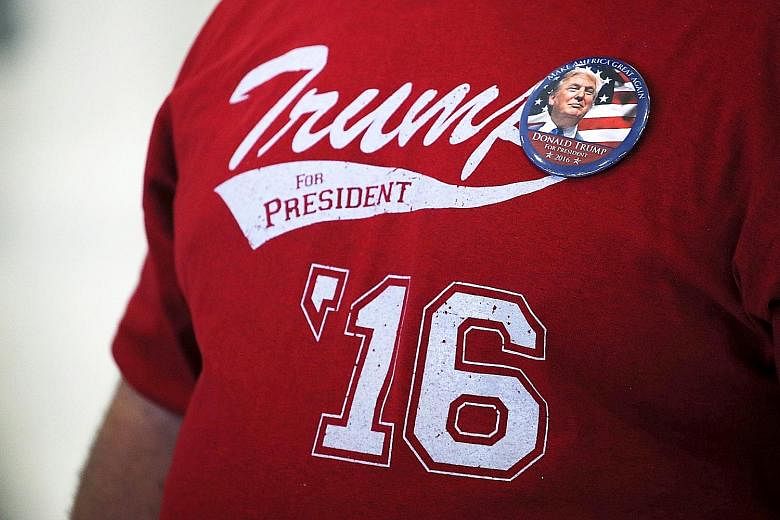Two new nationwide opinion polls are challenging long-held notions about the electability of the presumptive Republican presidential nominee Donald Trump.
Contrary to fears even from within his own party that he could lose by a landslide in November, the polls show Mr Trump neck and neck with his likely Democratic opponent, former secretary of state Hillary Clinton
The Quinnipiac University poll released on Tuesday shows the two are essentially tied in the critical states of Florida, Pennsylvania and Ohio, while a Reuters/Ipsos poll out a day later finds just a 1 percentage point difference between them.
The findings are forcing many to reconsider the question of whether the deeply polarising tycoon can win the White House, even though there is a debate on whether such opinion polls can predict the result six months ahead of an election.
Analysts, however, agree that Mr Trump does have a pathway - albeit a narrow one - to 1600 Pennsylvania Avenue.
Part of the problem is that any Republican candidate, even one not as divisive as Mr Trump, faces an uphill battle against an electoral map and demographics that favour Democrats, who are dominant in states with the most electoral votes and so need to win fewer battleground states to secure the White House. The growing immigrant non-white population also shifts support away from the Republicans, who are seen as more anti-immigrant.
"It will be very, very difficult for Trump to win in November unless he changes his campaign tone and finds ways of reaching out to female voters and racial minorities," said Dr Kyle Kopko, an American political expert from Elizabethtown College in Pennsylvania, one of the key states in play in November, which no Republican presidential candidate has claimed since 1988.
"Even if he does change his tone and makes significant inroads with women voters and minority voters, the Republican Party still faces a challenging electoral college map."
Indeed, most experts feel Mr Trump's best chance of winning involves targeting a handful of normally Democratic-leaning states where his more protectionist economic message might resonate.
Polls may show Mr Trump behind Mrs Clinton when it comes to women and minorities, but he does well among older white men, especially those who have lost jobs to trade.
A Trump victory would therefore likely involve states like Pennsylvania, Wisconsin and Minnesota, in addition to swing states like Florida and Ohio, said Professor Glenn Altschuler of Cornell University.
"With the exception of Ohio and Florida, those are typically in the Democratic column, they are blue states. What distinguishes those states is that over 70 per cent of their voting population is white and that is the most likely constituency for him to appeal to. If he can get a massive turnout in that constituency, then he has a pathway to winning the election," he said.
Prof Altschuler added: "I would tell him and this is not easy to do... I would tell him to focus his appeal primarily on the impact of trade on the unfairness in the system."
Still, most experts believe victory for Mr Trump is much easier said than done. Flipping a string of traditionally blue states to red ones is deemed nearly impossible in the current polarised political climate.
Mr Trump also faces the prospect of disunity within the Republican Party, with traditional conservatives such as the powerful Speaker of the House of Representatives, Mr Paul Ryan, hesitant to back him publicly. Mr Trump was due yesterday to meet Republican congressional leaders, including Mr Ryan, to try and overcome their differences and close ranks.
Meanwhile, speculation is rife over the likely running mate for the New York real estate mogul.
Former House Speaker Newt Gingrich on Wednesday did not rule out the possibility of running with Mr Trump, saying he "wouldn't turn it down automatically".
Mr Gingrich and New Jersey governor Chris Christie are among those said to be Mr Trump's likely vice-presidential pick.
Ultimately, it may well need something more than just good campaigning for Mr Trump to prevail in November, said James Madison University political science professor Marty Cohen.
"He could win if there were an exogenous shock to the system in the fall, like a major terrorist attack or a Hillary Clinton indictment. Aside from those two remote possibilities, I don't see much of a way for him at this point," said Prof Cohen.

